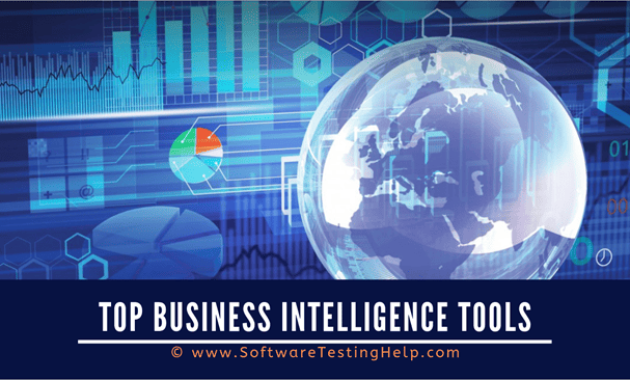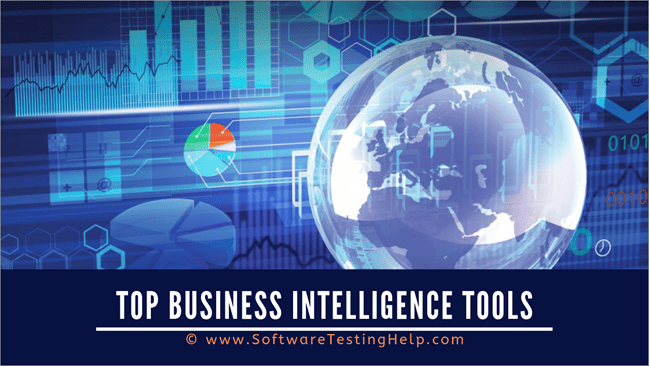
Dominate with Business Intelligence Software: The Expert’s Playbook
In today’s data-driven world, businesses are drowning in information. The challenge isn’t just collecting data; it’s extracting meaningful insights to make informed decisions. This is where Business Intelligence (BI) software steps in. This article delves into how you can dominate with Business Intelligence software, mirroring the strategies employed by industry experts.
The ability to analyze data, identify trends, and predict future outcomes is no longer a luxury. It’s a necessity for survival and growth. This guide provides a comprehensive overview of how to leverage Business Intelligence software to achieve these goals. We will explore the key features, benefits, and implementation strategies used by professionals to gain a competitive edge. The focus remains on practical application to help you dominate with Business Intelligence software.
Understanding the Power of Business Intelligence
Business Intelligence (BI) is more than just fancy dashboards. It’s a strategic approach to data analysis that transforms raw data into actionable intelligence. It empowers businesses to understand their performance, identify opportunities, and mitigate risks. The core function is to convert data into knowledge.
At its core, BI involves collecting, storing, analyzing, and visualizing data. This process allows businesses to gain insights into various aspects of their operations. These include sales, marketing, finance, and customer behavior. This holistic view enables better decision-making.
BI software provides the tools needed for this process. These tools include data warehousing, data mining, and reporting. The right software can significantly improve business performance.
Key Features of Expert-Level Business Intelligence Software
Not all Business Intelligence software is created equal. Experts rely on specific features to maximize their data analysis capabilities. Understanding these features is crucial to choosing the right tools.
- Data Integration: The ability to connect to various data sources is essential. This includes databases, cloud services, and spreadsheets. Experts need seamless data integration.
- Data Visualization: Interactive dashboards and reports are critical. They allow for quick understanding of complex data. Experts use these visuals to communicate insights effectively.
- Advanced Analytics: Capabilities like predictive modeling and machine learning are important. These tools help to forecast future trends and identify hidden patterns. They are crucial for proactive decision-making.
- Self-Service BI: Empowering users to create their own reports and analyses is key. This reduces reliance on IT departments. It also fosters a data-driven culture.
- Mobile Access: Accessing data on the go is increasingly important. Mobile BI allows for real-time insights. This is vital for making quick decisions.
Benefits of Implementing Business Intelligence Software
The benefits of Business Intelligence software are numerous and far-reaching. They extend beyond simply analyzing data. The impact on business performance can be significant.
- Improved Decision-Making: Data-driven insights lead to better decisions. This reduces reliance on gut feelings. It increases the likelihood of success.
- Increased Efficiency: Automation of reporting and analysis saves time. This frees up resources for other tasks. It also streamlines workflows.
- Enhanced Customer Experience: Understanding customer behavior leads to better service. This results in increased customer loyalty. It can also boost customer satisfaction.
- Cost Reduction: Identifying inefficiencies and optimizing processes saves money. This can be achieved through data-driven insights. It improves resource allocation.
- Competitive Advantage: Gaining insights faster than competitors is crucial. This allows businesses to stay ahead of the curve. It also helps to identify new opportunities.
Choosing the Right Business Intelligence Software
Selecting the right Business Intelligence software is a critical step. It should align with your business needs and technical capabilities. Several factors should be considered during the selection process.
- Scalability: Choose software that can grow with your business. Ensure it can handle increasing data volumes. The software should also accommodate more users.
- Ease of Use: The software should be user-friendly and intuitive. This reduces the learning curve. It also encourages wider adoption.
- Integration Capabilities: Verify compatibility with your existing systems. This includes databases and other software. Seamless integration is essential.
- Cost: Consider the total cost of ownership. This includes licensing, implementation, and maintenance. Compare different pricing models.
- Vendor Support: Ensure the vendor provides adequate support. This includes training, documentation, and technical assistance. Good support is crucial.
Implementing Business Intelligence Software: Expert Strategies
Implementing Business Intelligence software successfully requires a strategic approach. Simply installing the software is not enough. Proper planning and execution are critical.
- Define Clear Objectives: Identify specific business goals. Determine what you want to achieve with BI. This helps to focus your efforts.
- Assess Data Sources: Identify all relevant data sources. Evaluate the quality and accessibility of your data. Data quality is a key factor.
- Choose the Right Software: Select software that meets your needs. Consider the factors discussed earlier. This is a very important step.
- Data Preparation: Clean and transform your data. This ensures accuracy and consistency. Data preparation is a crucial step.
- Training and Adoption: Train your employees on how to use the software. Encourage widespread adoption across the organization. Training is very important.
- Monitor and Refine: Continuously monitor your BI system’s performance. Make adjustments as needed. This ensures optimal results.
Real-World Examples of Business Intelligence Software in Action
Many companies are already benefiting from Business Intelligence software. These examples demonstrate the power of data-driven decision-making.
- Retail: Retailers use BI to analyze sales data. They optimize inventory and personalize marketing campaigns. They also improve the customer experience.
- Healthcare: Healthcare providers use BI to improve patient outcomes. They also streamline operations. They can also reduce costs.
- Manufacturing: Manufacturers use BI to optimize production processes. They identify areas for improvement. They also reduce waste.
- Finance: Financial institutions use BI for risk management. They also detect fraud. They can also improve customer service.
- Marketing: Marketers use BI to analyze campaign performance. They optimize marketing spend. They can also personalize customer experiences.
Overcoming Challenges in Business Intelligence Implementation
Implementing Business Intelligence software can present challenges. Recognizing and addressing these issues is vital for success.
- Data Quality: Poor data quality can lead to inaccurate insights. Invest in data cleansing and validation. Data quality is very important.
- Lack of Skills: A shortage of skilled data analysts can be a problem. Provide training or hire experienced professionals. This is also a critical factor.
- Resistance to Change: Employees may resist adopting new tools. Promote the benefits of BI. Encourage a data-driven culture.
- Integration Issues: Integrating BI with existing systems can be complex. Plan carefully and test thoroughly. This can be a major hurdle.
- Cost Overruns: Implementation costs can exceed initial estimates. Budget carefully and manage the project effectively. Cost management is key.
Future Trends in Business Intelligence
The field of Business Intelligence is constantly evolving. Staying informed about future trends is crucial for maintaining a competitive edge.
- Artificial Intelligence (AI) and Machine Learning (ML): AI and ML will play a larger role. They will automate data analysis. They will also provide more advanced insights.
- Cloud-Based BI: Cloud-based solutions will become more popular. They offer scalability and flexibility. They also reduce IT overhead.
- Data Democratization: More people will have access to data. Self-service BI tools will empower users. This will foster a data-driven culture.
- Data Governance: Data governance will become increasingly important. This ensures data quality and compliance. Data governance is critical.
- Focus on Actionable Insights: The emphasis will shift towards actionable insights. The goal is to drive business outcomes. This is the ultimate goal.
Conclusion: Mastering Business Intelligence
Business Intelligence software is a powerful tool for businesses. It can transform data into actionable insights. This guide has provided a comprehensive overview of how to dominate with Business Intelligence software. By understanding the key features, benefits, and implementation strategies, you can equip your organization for success. Embrace the power of data, and you will be well-positioned to thrive in the future. Make sure you always look for ways to dominate with Business Intelligence software.
By following these steps, you can effectively use Business Intelligence software. This will lead to better decision-making. It also helps to drive business growth. With the right approach, you can dominate with Business Intelligence software.
[See also: Related Article Titles]
